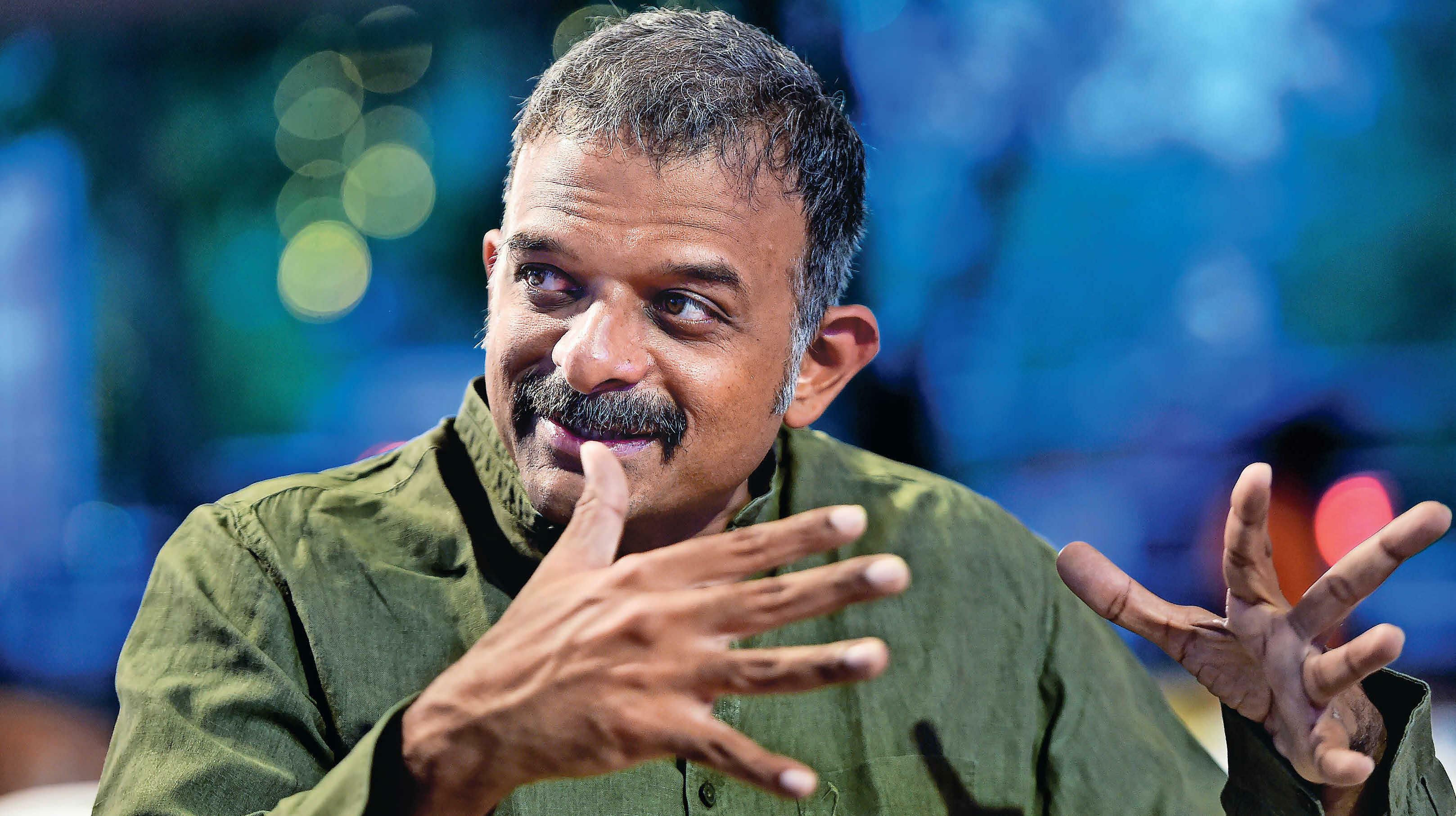Prøve GULL - Gratis
Musick!
THE WEEK India
|April 07, 2024
Madras Music Academy honours T.M. Krishna. Not everyone is impressed

IN THE OTHERWISE serene world of Carnatic music, vocalist T.M. Krishna has been a polarising voice. The divide seems to have reached a crescendo with many musicians protesting The Music Academy (popularly the Madras Music Academy) conferring the prestigious Sangita Kalanidhi Award on him. Singer sisters Ranjani and Gayatri said they would boycott the Academy’s annual music festival. Instrumentalist Chitravina N. Ravikiran, who received the award in 2017, said he would return it. Vocalists Trichur Brothers—Srikrishna and Ramkumar Mohan—have withdrawn from the Academy’s annual music conference. Vocalist Vishakha Hari criticised the Academy’s decision to honour Krishna.
Soon the liberals and Dravidian leaders came in Krishna’s defence. Chief Minister M.K. Stalin, Lok Sabha member Kanimozhi and Dravida Kazhagam leader Ki Veeramani praised Krishna for his contributions. Academy’s president N. Murali replied to Ranjani and Gayatri, saying their stance was “unbecoming of artistes and in poor taste”.
It is not Krishna’s music, but his politics that triggered the controversy. He is known to be a ‘communist’ and a sympathiser of Periyar E.V. Ramasamy. Many in the Carnatic music fraternity were upset when he came out with a composition on Periyar. In 2018, when a statue of Lenin was brought down in Tripura after the BJP’s victory in the assembly elections, author Perumal Murugan wrote a poem on how statues were the symbols of different thinking. Krishna composed it in the Kalyani raga and Adhi talam. In 2023, Krishna sang another song penned by Perumal Murugan—‘Sindikka Chonnavar Periyar’ or Periyar asked us to think—and released it on the occasion of the centenary of the Vaikom Satyagraha.
Denne historien er fra April 07, 2024-utgaven av THE WEEK India.
Abonner på Magzter GOLD for å få tilgang til tusenvis av kuraterte premiumhistorier og over 9000 magasiner og aviser.
Allerede abonnent? Logg på
FLERE HISTORIER FRA THE WEEK India

THE WEEK India
A KNIGHT TO REMEMBER
How the latest Game of Thrones prequel saved the franchise
4 mins
March 08, 2026

THE WEEK India
CURRENTS OF CHANGE
Kayakers on the Tawangchu river are transforming a frontier district
3 mins
March 08, 2026

THE WEEK India
Himalayan challenge
The upcoming parliamentary elections is a referendum on governance, institutional integrity and public trust
5 mins
March 08, 2026

THE WEEK India
Third Mumbai will be much bigger than what Mumbai is now
THE DIFFERENCE BETWEEN MUMBAI AND NAVI MUMBAI IS THAT NAVI MUMBAI IS PLANNED, AND HAS MORE OPEN SPACE, PLAY AREAS AND GREENERY. THIRD MUMBAI WILL BE BIGGER AND BETTER.
3 mins
March 08, 2026

THE WEEK India
AI dreams and blocked pipes
I can't see the clogged toilet pipes of the world's most expensive and advanced aircraft carrier, the USS Gerald R. Ford, currently stationed in the eastern Mediterranean on a mission to punish Iran into abject surrender, as anything but symbolic.
2 mins
March 08, 2026
THE WEEK India
Rejoinder to the column by Mahua Moitra
This is with reference to Ms Mahua Moitra's column, 'Hard questions for Hardeep' (March 1, 2026). The column dresses up insinuation as accountability, builds its narrative on inflated arithmetic, and invites the reader to mistake volume and vocabulary for evidence. The record does not support her leaps. But before we examine the substance of what she claims, the reader is entitled to consider who is making the claim—because the messenger, in this case, is the message.
8 mins
March 08, 2026

THE WEEK India
Open AI sesame
India needs more than a summit to open the doors to AI glory
5 mins
March 08, 2026

THE WEEK India
A global invocation
Auroville and Puducherry hosting Global Spirituality Mahotsav 2026
3 mins
March 08, 2026

THE WEEK India
Power of resistance
A durable democracy in Bangladesh needs an empowered, institutional and responsible opposition
2 mins
March 08, 2026

THE WEEK India
The pause that matters
In many parts of the world, including India, a quiet but pivotal shift is unfolding. Women are living longer, fuller lives, and daughters are outpacing their mothers in education, careers and ambition. Even so, one of the most important transitions in a woman's health journey is only now receiving the attention it deserves. Menopause is increasingly being understood not as an ending to be endured, but as a turning point shaping long-term health and vitality.
2 mins
March 08, 2026
Listen
Translate
Change font size
